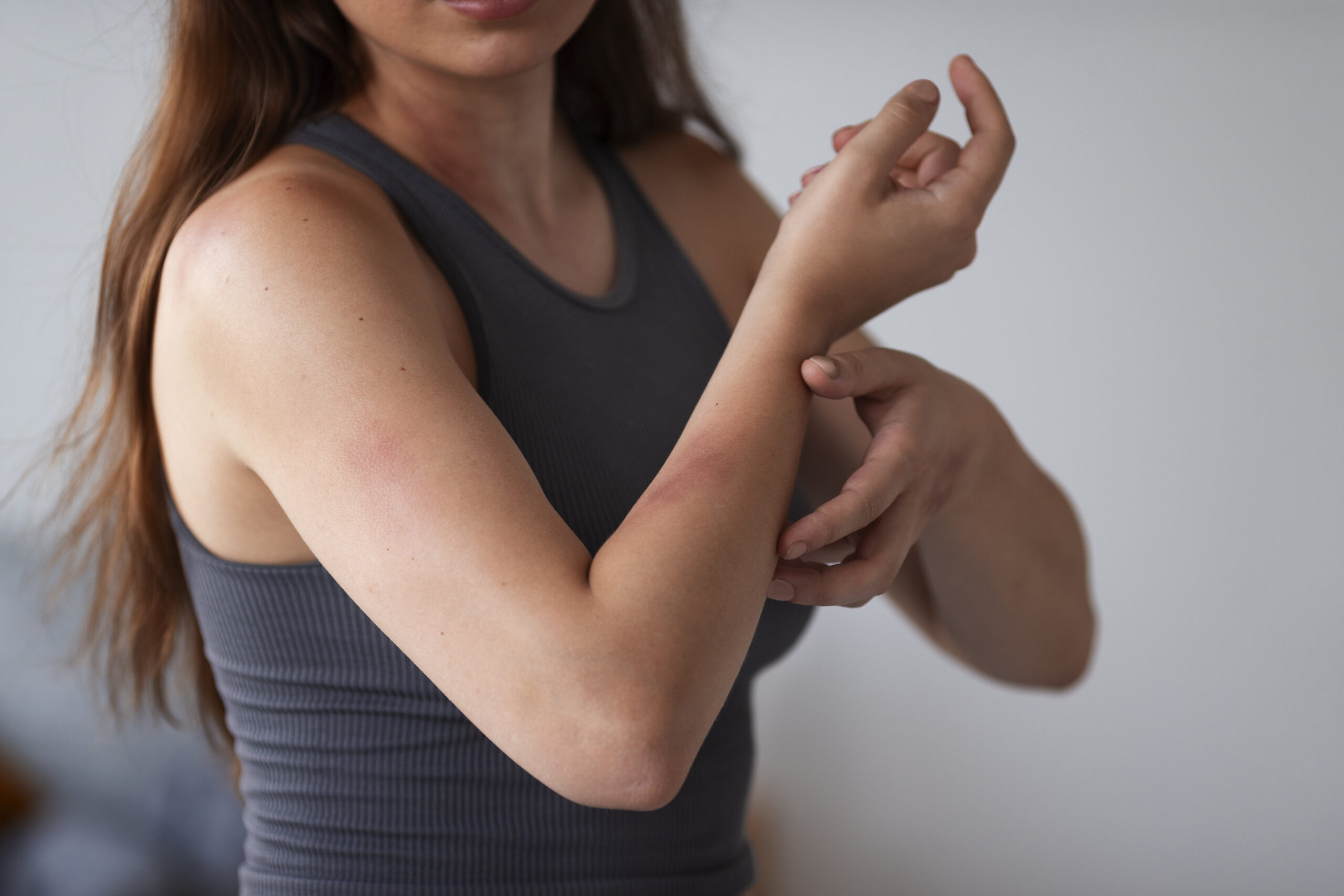The relentless urge to scratch, whether it’s a subtle tickle or an intense irritation, can be agonizing. Scientists now reveal that a common type of skin bacteria may be the trigger behind this sensation, particularly for individuals dealing with eczema, also known as atopic dermatitis.
Understanding the Role of Skin Bacteria in Itchiness:
Research conducted at Harvard Medical School, led by Prof Isaac Chiu, sheds light on the significance of the microbial composition on our skin in influencing our health. The study, encompassing experiments on mice, human samples, and nerve fibers, establishes a crucial connection between Staphylococcus aureus, commonly known as staph, and atopic dermatitis.
Linking Staph to Itchiness:
While Staph is frequently present on itchy skin lesions, the study is groundbreaking in demonstrating that Staphylococcus aureus can directly cause itch. The researchers observed that mice with methicillin-resistant Staphylococcus aureus (MRSA) applied to their skin were not only more prone to developing dermatitis but also exhibited increased scratching behavior. This behavior was triggered even by slight stimuli, mimicking the heightened sensitivity experienced by individuals with eczema.
Identifying the Culprit: V8 Protease
Further investigations focused on understanding how bacteria trigger itchiness. Through experiments with genetically modified forms of MRSA, the researchers identified an enzyme called V8 protease as the culprit. Injecting this substance into mice induced scratching, and skin swabs from human patients with atopic dermatitis showed elevated levels of this enzyme.
Interaction with Nerve Cells:
The study unveiled that V8 protease interacts directly with nerve cells in the skin, transmitting itch signals to the brain by binding to specific receptors on neurons. When mice were administered an anti-clotting drug known to block these receptors, their itchiness significantly subsided. This discovery opens up the possibility of developing a topical cream or ointment to alleviate itchiness in the future.
Implications for Eczema Treatment:
While further research in humans is essential, experts acknowledge the significance of this study. Dr. Emma Wedgeworth, a consultant dermatologist and British Skin Foundation spokesperson, emphasizes the pivotal role of disruptions to the skin microbiome in causing itchiness and eczema. She hopes that this understanding will lead to new treatment options, providing relief from the misery of itch and eczema.
Looking Ahead:
Joan Geoghegan, a professor in microbiology and infection at the University of Birmingham, sees great potential in using this knowledge to develop targeted therapies. Researchers may explore ways to specifically address the itch-inducing bacterial protease V8 or its target on sensory neurons, aiming to prevent itch and the damage caused by scratching.
Conclusion:
This groundbreaking research unravels the intricate relationship between skin bacteria, particularly Staphylococcus aureus, and the itchiness experienced by individuals with eczema. The identification of V8 protease as a key player opens doors to potential therapies that could revolutionize the treatment of itchiness associated with chronic skin conditions. As scientists delve deeper into these findings, there’s hope for innovative solutions that improve the lives of those affected by eczema-induced itchiness.




